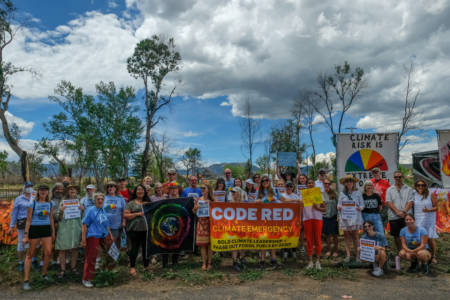“Be the change you wish to see.” – Gandhi
Guiding principles to consider in your work to effect change:
1. Remember the power of collaborative learning and shared discovery. Remember the power of connection — both making new connections and cultivating existing connections. Networks of people have immense power. Think small groups translating into larger social change initiatives. In working to effect change, we need to engage people in a way that draws forth diverse perspectives. We also need to create space for people to share what matters most to them. If we can remember to speak from our experiences, and not from a place of being “right” or an “expert,” we can encourage full participation and engagement from everyone involved.
2. Foster opportunities for reflection. When we create a supportive environment where reflection can occur, this is where shifts in perspective are possible. As one participant in a recent workshop I led remarked, “When we slow down in small groups and really listen to one another, this is how we can really tell what is going on with any issue. We can really hear one another and take all experiences into consideration when working to effect a change.” We need to ask the right questions — and ones that don’t always have immediate answers. We need to slow down and consider new ways of being, together.
3. Work ‘deeply’ on problems, which entails new ways of thinking. As author Ronald Heifetz reminds us, some problems are adaptive in nature, which means they are highly complex and evolving, often with no immediate solution available. In order to respond, we often need to dig deeper to consider how our values, attitudes, beliefs, and habits are playing a role in the ‘problem’ at hand. (Think climate change or fossil fuel dependence.) When our perspective shifts and broadens, we become more able to explore new possibilities and solutions and to tackle otherwise seemingly unsolvable problems with greater skillfulness.
4. See and act with systems in mind. Hold a systems perspective when working to find a solution to any issue you are wanting to tackle. Consider using the Iceberg: A Systems Thinking Model as a resource. When holding a systems thinking perspective, look for patterns and relationships — and work to make visible the invisible (for example, our assumptions). Aim to seek out root causes. Ask yourself, and the groups you work with, “What assumptions, beliefs or values do we hold about the system in question?” And, “What beliefs keep the system in place?”
5. Weave in tangible opportunities for action. Finally, make sure to offer tangible ways for people to get involved and work towards effecting change. There is nothing more difficult than a feeling of powerlessness or uncertainty about where to start — especially when tackling big issues and complex systems. Discern a starting point and consider ways that each individual can insert themselves into the systems at play in order to have an impact. There is always a place to begin, and each of us can be a catalyst for positive change.
Want to get involved and take action to tackle the climate crisis? Here are a few ways to get started:
- Sign the Support Letter for a Phase Out of New Oil and Gas Fracking Permits by 2030 here.
- Ready to work in community with others? Join one of 350CO’s committees here.

